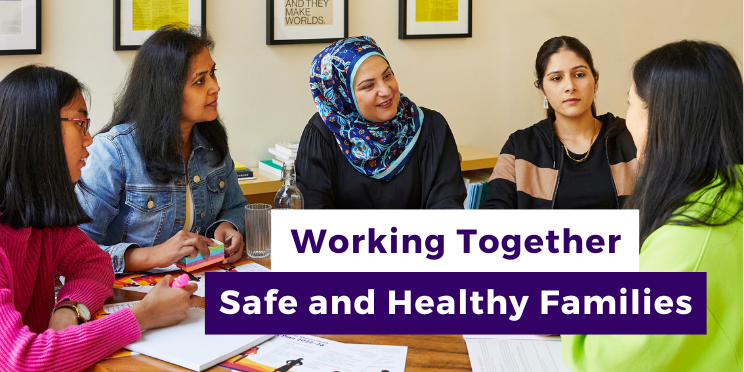
MCWH supported the delivery of the Victorian Government's grant program "Working Together". As part of the program, we ran capacity building training sessions for over 30 grantee organisations funded in the project, focusing on how they could implement bilingual health education into their project delivery. We supported them to understand more about the value of bilingual health education when delivering family violence prevention activities with multicultural and faith-based communities, and how to do this work using an intersectional lens.
We also delivered 50 in-language health education sessions across Hume, Casey, and Wyndham Local Government Areas. We worked with local community organisations, such as cultural groups, maternal and child health facilities, community centres and school hubs to deliver in-language health information about gender equality, healthy relationships and preventing family violence.
Sessions were delivered in a vairety of languages including Arabic, Dari, Punjabi, Karen, Hindi, Turkish, Lebanese, Chinese, Vietnamese, Filipino, Russian, and Nepali.
This project was funded by Family Safety Victoria.
Our Achievements
Capacity Building Sessions
- 13 of 14 organisations strongly agreed or agreed that attending these sessions improved their understanding of how to deliver in-language health education sessions on PVAW and how to effectively support bilingual health educators delivering the sessions.
- 13 of 14 organisations said that they felt very confident or confident delivering in-language health education sessions.
I found this content important and helpful to provide space for reflecting on tools for how we can better equip all workers to support in-language and in-culture educators so that the burden does not sit with in language workers alone (which I feel can sometimes happen across the sectors where challenges and how to navigate them are not talked about or supported). All the content was highly transferable to many areas of work not just woman's health education alone which was highly beneficial!
Health Education Sessions
- 248 migrant and refugee participants (246 women and 2 non-binary people) participated in family violence education sessions in their preferred language.
- After the gender equality session, 208 participants (84%) felt able to talk with family, friends or community members about the impact of gender inequality on the health and wellbeing of women and non-binary people.
- 212 (85%) participants indicated that after the session they knew how to access support services.
- 197 (79%) participants indicated that they felt very likely or likely to share information about support services with family, friends, or community members.
- 199 (80%) increased their confidence in understanding and being able to discuss the different types of family violence.
- 240 (96%) said that they were very likely or likely to recommend MCWH’s sessions to other people in their community.
I wasn’t aware that the financial control and forced sexual relationship between husband and wife falls under unhealthy relationship categories. That is something new we learned today that need to share with our family and friends.
